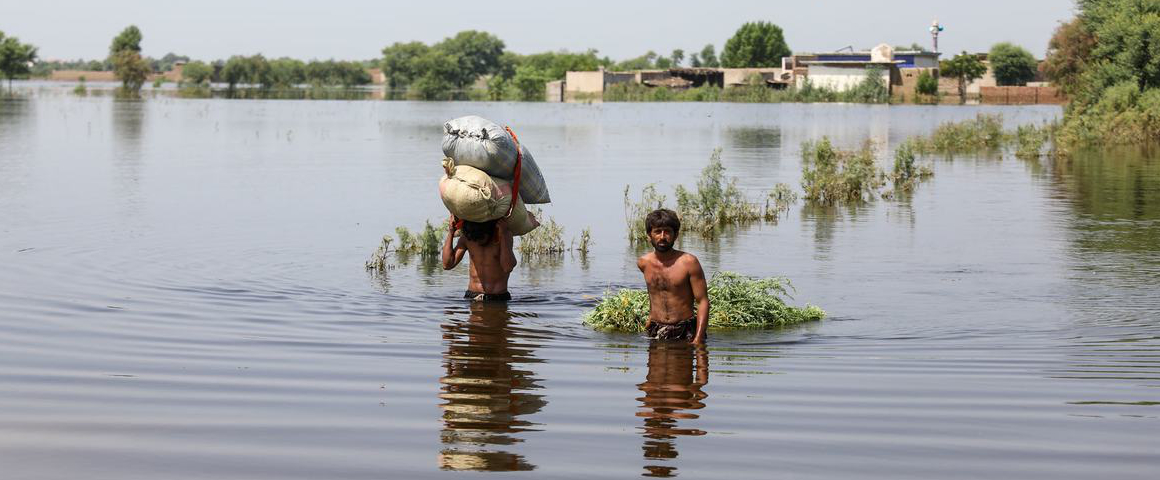By Imdad Qazi
In Pakistan, torrential rains have turned into floods.
Floods have destroyed vast regions of Baluchistan, Sindh, Saraiki Waseb (South Punjab), Pakhtunkhwa and Gilgit. This territory encompasses about half of the whole country. The official statistics indicate that almost 1200 lives have been lost. In reality, this figure only counts the deaths in cities. Those residing in the villages or mountains, particularly in the regions of Baluchistan, have had their whole families wiped away and are not included in the count. Among them, there will be many thousand fatalities. As of September 3, around 35 million individuals have been affected by this flood.
These monsoon rains, which started on June 14, have exceeded their 30-year record. More than 793,900 livestock have died due to these rains and subsequent flooding. More than 735,584 houses have been destroyed, while 1,427,039 homes have been damaged beyond repair. 145 bridges and almost 3000 kilometers of roads have been destroyed. 17,562 schools have been destroyed or are no longer functional. The economic damage exceeds $10.5 billion.
Exploring the factors that led to this destruction is crucial:
1. During the British colonial era, the land was surveyed. Natural rainfall drains heading to the sea were not surveyed at the time and were categorized as non-agricultural land. Following the creation of Pakistan, the feudal lords were included in the governments and increasingly began to occupy those lands. This process has become increasingly prevalent over the past 40 years. As a result, the natural rainfall channels have been obstructed. When it rains heavily, the water flows wherever it finds its way and destroys villages due to channel obstructions.
2. Similarly, if water flows towards these feudal lords’ lands, it will be redirected by damming in the other direction, even if it submerges a town or village.
3. Even inside the river, feudal lords have erected private dams and encroached on public meadows and forest areas for private farming. This has limited the river’s passageway to congested pathways.
4. Illegal construction of hotels and residential settlements has occurred along the riverbanks and sometimes inside the river passages themselves. Many of these structures are destroyed whenever there is flooding by heavy rainfall.
5. The country’s forests are being chopped down indiscriminately. More than half of the forests in the plains have been chopped down and replaced with commercial farming lands. Similarly, for commercial housing schemes.
The rains and subsequent flooding have caused a human tragedy:
1. Flood victims are living on the banks of highways and canals under the open sky.
2. The grain stored for food by people has been destroyed or drowned in water by these severe rains. Only around 10 percent of the affected get food assistance from the government.
3. In people, the spread of skin diseases, malaria, diarrhea and seasonal fever is accelerating. Diseases are spreading similarly in animals.
The Communist Party of Pakistan and its fronts are working hard to collect food, tents, clothing and medicines. They have been holding daily demonstrations to show their support for the victims of the floods and to put pressure on the government. In addition, they have been making efforts to secure compensation for destroyed houses and crops. To counter the government’s propaganda, our comrades are raising awareness that this disaster was caused by the corruption and incompetence of those in positions of authority. They strive to educate the general populace that this system is broken, and that people must organize to bring about a revolution to change it.
Imdad Qazi is Secretary General of the Communist Party of Pakistan. This article is excerpted from a longer brief available at solidnet.org
Get People’s Voice delivered to your door or inbox!
If you found this article useful, please consider subscribing to People’s Voice.
We are 100% reader-supported, with no corporate or government funding.




